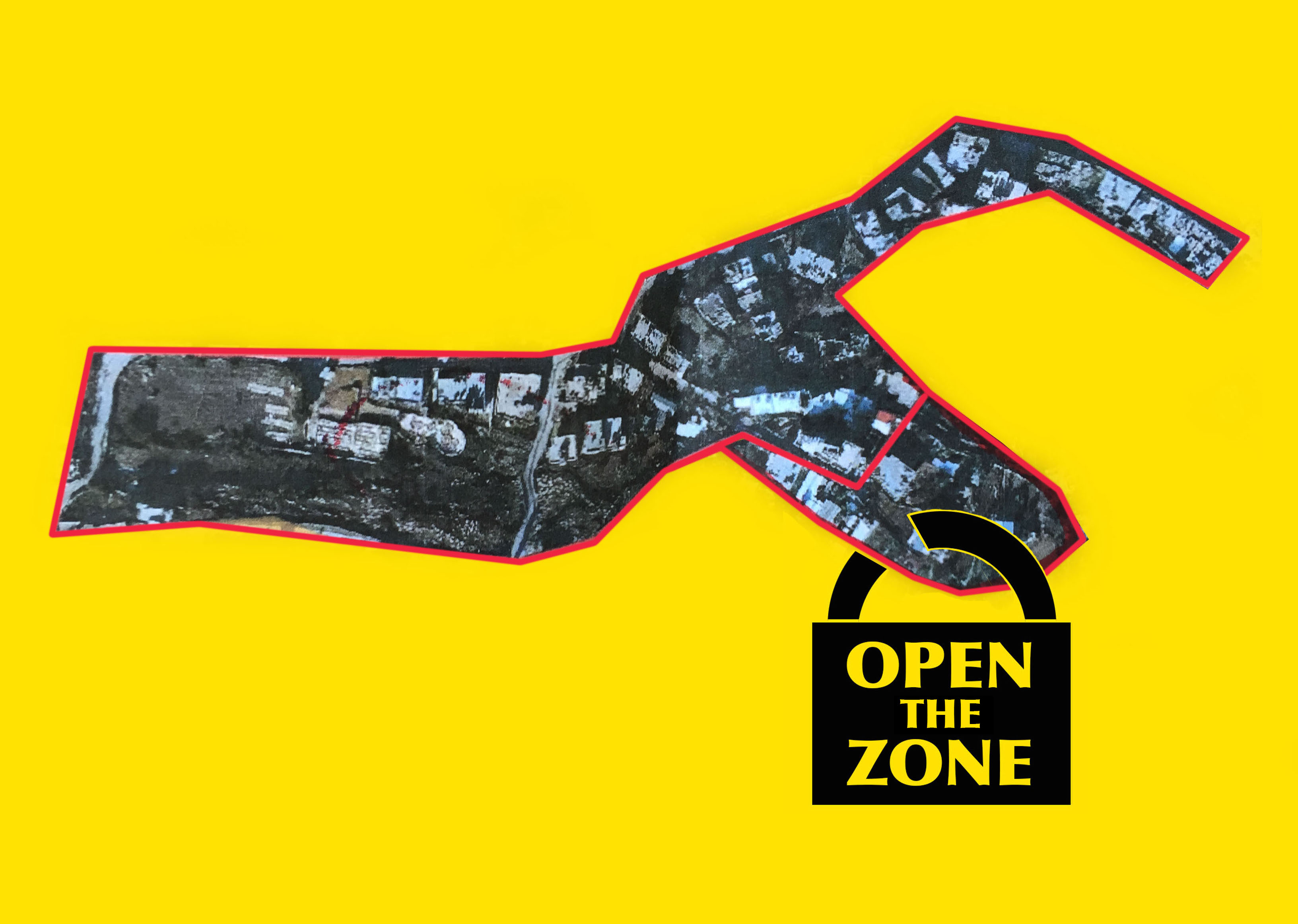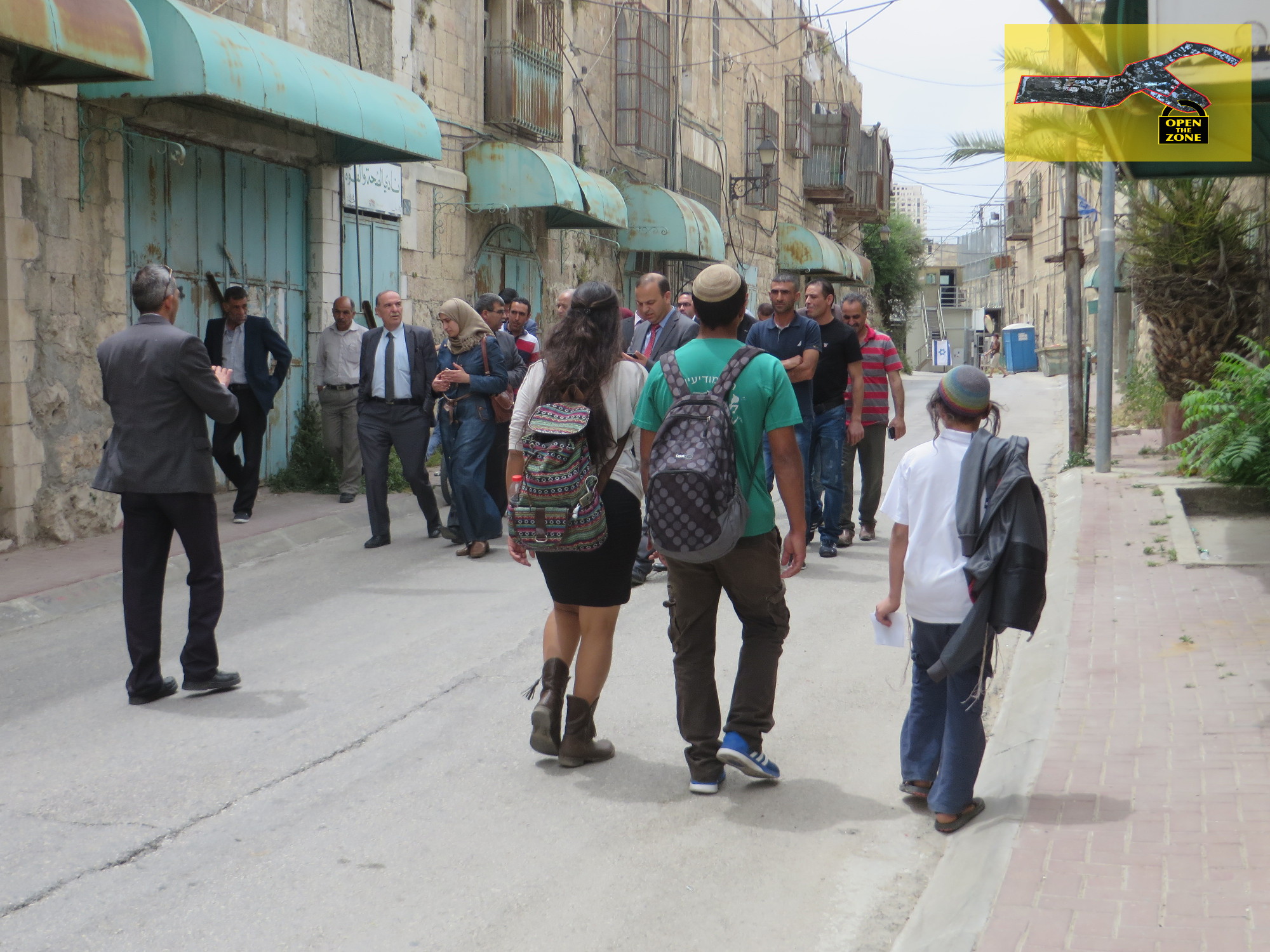Category: Hebron
-
Open The Zone – twitter storm
10th May 2016 | Open The Zone campaign | Hebron, occupied Palestine Take action to end the closed military zone in Hebron and join our twitter storm and thunderclap campaign! Take a stand against the forced closure of Shuhada Street and the neighbourhood of Tel Rumeida in Hebron. The area has been a ‘closed military…
-
Open The Zone: municipality delegation visit to CMZ
10th May 2016 | Open The Zone Campaign | Hebron, occupied Palestine Yesterday, 9th May 2016, the Mayor of Hebron and several employees of the municipality of Hebron visited the closed military zone in Shuhada Street and the Tel Rumeida neighbourhood in the framework of the Open The Zone campaign. The delegation from the municipality…
-
Open The Zone: information on CMZ and Hebron
Friday, May 27th Tel Rumeida and Shuhada Street are among the oldest areas of the city of Hebron. They are also among the most difficult places for Palestinians to now live. The first illegal settlements set up after the Israeli occupation in 1967 were along Shuhada Street and in Tel Rumeida. Populated by ideological Israeli settlers…


